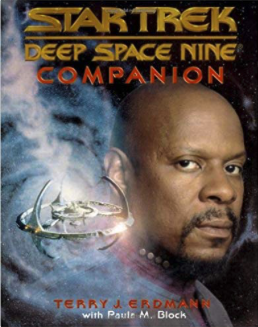I think you and I can be sure of two things. First, you know that there are stupid people in the world. Second, I cannot know whether I’m one of them or not.
But I can know when I’m being patronised. Such as last Monday, cooking in the kitchen, listening to a live album recording of a reunion concert, the name of which I am never going to tell you. Most of the time, the album just kept making me wonder if the music was this bad 40 years ago, but at one point I was patronised.
It’s not a great album and it doesn’t sound like it was a brilliant reunion concert, but there is no possible question that the only people who went to it on the night are fans of the original. Maybe also a few sorry plus-ones. But the plus-ones aren’t going to be converted into fans for the night, they are the designated drivers, they are the bodies filling up the arena and making the acoustics right.
For the fans, these are live reenactments of songs they’ve either cherished for decades or, like me, used to like a lot and are treating the night as a tunnel back to their slightly embarrassing teenage years. It’s unlikely that there is a detail they don’t remember, and if they’re putting up with these flat versions, they’re not going to storm out because one tune is slightly less well known than the others.
And yet there it is. One of the many performers gives us a version of a raucous song with as little feeling as if he were reading instead of singing, and then says “You know that came from X, right?”
Okay, he didn’t say X.
But I know where it comes from so now I’m standing in my kitchen, giving him a Paddington stare.
He wasn’t to know that I would have sharp knives with me when I listened, nor could he possibly guess that he did this to me three days before Harry Potter and the Prisoner of Azkaban did it worse.
JK Rowling wrote the book, I suspect you’ve heard that, and Steve Kloves wrote the screenplay. But I am certain, groundlessly but entirely certain, that either Kloves did not write one specific line of the script, or he did it faced with a gun and a cut in his fee.
Azkaban is the one where our heroes go through a horrible experience, then go back in time to the same moment and put things right. It’s the one where on the first time through, ‘arry Potter is rescued from death by who he is certain is his dead father somehow come back to life to do some magic.
And it’s the one where the next time through, when Hermione has taken them back in time, that we and ‘arry realise the saviour is Harry himself. It’s moving and effective, and I think the whole film is excellent.
But.
We’ve seen this scene from both sides now. We’ve seen it because of Hermione. We cannot, just cannot fail to grasp what has happened in the story unless we are either dim or are watching while writing on Twitter. Cannot. If there is one thing more certain than our being fully aware of what happens, it’s that so is Hermione. She was there. She was right there, and it’s her time-turner device that enabled it all to happen.
And yet there it is. Leaving the scene, ‘arry explains to her what happened and I am wincing, until he ends his with explanation with “does that make sense?” and now wincing is not enough. In that moment, I did not believe I could be more patronised.
And yet there it is. Hermione has to say “No, it doesn’t.”
Hermione is that rare thing, a character in drama who is clever. She’s also that un-rare thing of a clever character who is often derided for moving the plot along while we are supposed to be with the less clever yet somehow more heroic and admirable others.
“No, it doesn’t” does serious damage. Three words and what they tell me as I am shunted out of the story, is that someone in the production worried that the dimwits and the inattentive will feel bad about being dim and inattentive, unless we have a character tell them it’s okay.
It’s not okay. It also doesn’t do the job it’s supposed to, either. People who were inattentive two minutes ago are not going to be any more attentive now, and I offer that since “No, it doesn’t” comes something over two hours into the film, the dimwit element will have lost the plot and stopped viewing quite some time ago.
Instead, what it does achieve is showing us that Hermione is stupid. You can tell us over and over that she’s the cleverest, as this film and the others in the series do, but no, she isn’t. Here she is, right in front of us, unable to understand something she witnessed, something she enabled, and then unable to comprehend a painfully simple explanation.
She’s the best character in the series and she gets shot in the face by this one line.
All of which is on my mind because a couple of weeks ago I was accused of assuming too great an intelligence on the part of my readers of some article or other. I don’t know that’s true, I don’t think I can ever know it’s true, but I can know that I’ll take that, I’m fine with that.
